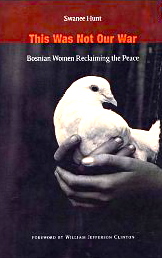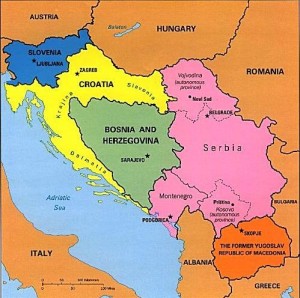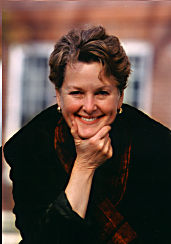Note: This book was WINNER of the 2005 L.L. Winship/PEN New England Award for non-fiction.
“If all soldiers were women, there would not be so much bloodshed.”
Feeling utterly b etrayed by their leaders, twenty-six women from all over Bosnia meet with Swanee Hunt, former US Ambassador to Austria and Chair of Women Waging Peace, a global policy initiative. In their own words, they describe the war which ravaged their country and reduced it to rubble. As they make clear from the outset, this war was not a result of age-old ethnic antagonisms in the Balkans, where city after city had been peacefully multi-ethnic and where most families had loyalties to more than one group. It was the direct result, they believe, of the nationalism fomented by unscrupulous politicians, especially Slobodan Milosevic and Radovan Karadzic, as they seized power and wealth in the vacuum which existed following the death of Marshall Tito.
etrayed by their leaders, twenty-six women from all over Bosnia meet with Swanee Hunt, former US Ambassador to Austria and Chair of Women Waging Peace, a global policy initiative. In their own words, they describe the war which ravaged their country and reduced it to rubble. As they make clear from the outset, this war was not a result of age-old ethnic antagonisms in the Balkans, where city after city had been peacefully multi-ethnic and where most families had loyalties to more than one group. It was the direct result, they believe, of the nationalism fomented by unscrupulous politicians, especially Slobodan Milosevic and Radovan Karadzic, as they seized power and wealth in the vacuum which existed following the death of Marshall Tito.
The twenty-six speakers are Serbs, Croats, Muslims, Catholics, Eastern Orthodox, atheists (former Communists), and Jews, all bright, articulate women who are, and have been, working to heal their society. They include engineers, several journalists and physicians, a teacher, a member of the Bosnian Parliament, a professor at the School of Economics, a landscape architect, a member of the seven-member shared Presidency, a farm wife, a flower shop owner, a teenage student, and an art gallery owner, and they represent all areas of Bosnia, from Srebrenica to Mostar, Tuzla, and Sarajevo.
With one voice, they blame their politicians for the atrocities of the war, pointing out that their leaders’ manipulation of the international press and their sectarian chauvinism led to ethnic fundamentalism in a country which had previously been multicultural. The imposition of traditional roles on women led to their enforced withdrawal from decision-making, and they universally agree that that they might have been able to influence the direction of the country toward more cultural understanding and better communication if they had been allowed to continue their previous political, professional, and social roles.
The stories here are lively, personal, often incredibly sad, and absolutely unforgettable. Beautiful color portraits of the women, along with brief biographies, make each woman a “living” voice, and the reader is struck by how much these women typify women around the world. Most remarkably the women, despite the losses of parents, husbands, sons, and friends, all continue rebuilding their country, ignoring ethnic labels as they work to get housing for all refugees, find medical supplies and equipment, establish a women’s collective, work with rape victims, plan conferences to bring together women from all over the country, make  radio broadcasts, organize news agencies, write books, promote international awareness of the atrocities in Bosnia (especially in Srebrenica), care for the elderly, become ambassadors, and run schools.
radio broadcasts, organize news agencies, write books, promote international awareness of the atrocities in Bosnia (especially in Srebrenica), care for the elderly, become ambassadors, and run schools.
Hunt’s book and the words of these remarkable women are a major achievement in the understanding of this terrible war, a war far different from what most of us have been led to believe. Fourteen magnificent photographs, in addition to the women’s portraits, will wring the heart–an unrecognizable national library, a snow-covered Sarajevo soccer field which is now a cemetery, and a decimated dormitory in the Olympic village. Yet amidst the carnage are smiling women who are changing the face of Bosnia. As Kada tells Hunt, “Thank you for telling my story. What’s written down will last.”
Notes: The author’s photo appears on http://womenandpolitics.org
Her website is at https://www.swaneehunt.org/milestones/
The map of the former Yugoslavia, with its new boundaries, may be found here: http://www.psywarrior.com

